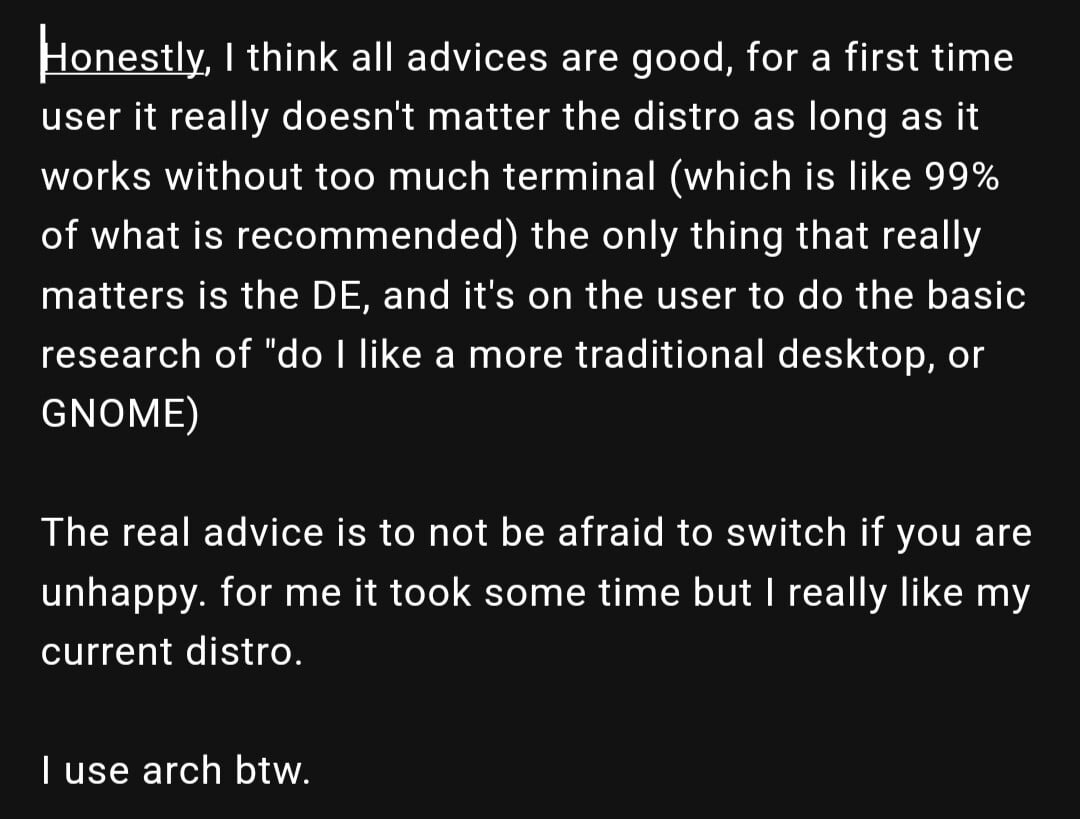this post was submitted on 29 Oct 2024
115 points (84.0% liked)
Linux
48331 readers
630 users here now
From Wikipedia, the free encyclopedia
Linux is a family of open source Unix-like operating systems based on the Linux kernel, an operating system kernel first released on September 17, 1991 by Linus Torvalds. Linux is typically packaged in a Linux distribution (or distro for short).
Distributions include the Linux kernel and supporting system software and libraries, many of which are provided by the GNU Project. Many Linux distributions use the word "Linux" in their name, but the Free Software Foundation uses the name GNU/Linux to emphasize the importance of GNU software, causing some controversy.
Rules
- Posts must be relevant to operating systems running the Linux kernel. GNU/Linux or otherwise.
- No misinformation
- No NSFW content
- No hate speech, bigotry, etc
Related Communities
Community icon by Alpár-Etele Méder, licensed under CC BY 3.0
founded 5 years ago
MODERATORS
you are viewing a single comment's thread
view the rest of the comments
view the rest of the comments


I just switched from Windows to Linux recently. Have gone from Zorin to Linux Mint and my friend likes Ubuntu. I would like to think that I watched a lot of videos and read a lot of articles before switching, but I've never heard of immutable distros. Could you please explain that term?
Edit: Grammar.
Yes, the short version is that immutability means that the filesystem (except for your home folder) is read-only and updated all at once.
This makes it so that updates never break the machine, and you can roll back to previous versions of the machine all at once, seamlessly.
For new people I always recommend fedora kinoite, but if you're highly experienced, immutability provides little value as you can always just chroot and unbreak the system yourself.